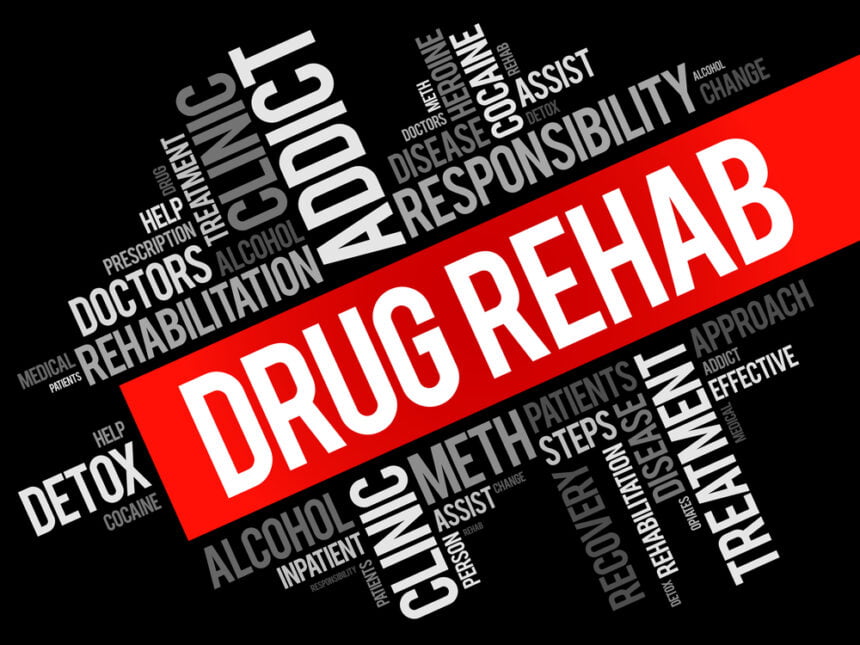Substance abuse is a serious disease that affects not just one?s body, not just one?s mind but one?s entire existence. Often, it hardly matters what substance one is addicted to; the mere compulsion to continue abusing that substance is enough to result in severe consequences in health and life. Thus, when one finally makes the decision to begin rehabilitation and recover from substance abuse, one would hope that the options would be simple and straightforward ? but that is unfortunately not the case. The world of drug recovery is vast and convoluted, and often substance abusers are so overwhelmed by the variety that they fall back into the comfort of their old, abusive habits. While it?s impossible to address every minute variation in recovery options, there is one significant dichotomy worth evaluating: inpatient vs. outpatient programs. In truth, neither one is inherently better than the other; both offer advantages and disadvantages worth considering.
Inpatient Rehabilitation
To start, it might be valuable to explain what inpatient drug rehab entails. In this recovery strategy, a patient will check into a treatment center, where they will spend a certain length of time ? usually around one month but stays can last as long as six months depending on a patient?s needs ? under close care by health and addiction professionals. Every aspect of a patient?s environment is heavily regulated to facilitate recovery; typically, they aren?t permitted to leave the center?s property or talk to anyone outside the rehab without consent from their doctors or advisors with the intention of preventing relapse before the physical and psychological dependencies are relieved. Advantages of Inpatient Rehab While this form of rehabilitation might seem aggressive, many substance abusers desperately need a drastic change to overcome their addictions. Especially during the early period of recovery, when withdrawals severely threaten not only recovery success but also a person?s health and well-being, 24-hour supervision is crucial to ensure that health events do not escalate and that those in recovery never feel alone or desperate. After the initial period of withdrawal, patients in inpatient recovery centers are then given the tools and space to build wellness and establish their new, sober selves. This often takes the form of courses or programs like yoga, art therapy, acupuncture and more ? the goal is to allow patients to experiment with alternatives to drug abuse, so they won?t be tempted to relapse after their time in the center ends. Inpatient rehabs have a built-in community of likeminded individuals. Often, it isn?t just one?s physical and emotional habits that enable substance abuse; it is also one?s social circumstances that make it easier to maintain addictions. Thus, being surrounded by a new group of people who do not rely on substances and who are developing new, healthy methods of coping can be a major boon for those looking to recover. Disadvantages of Inpatient Rehab Of course, inpatient centers aren?t for everyone. For one, inpatient rehabs prevent patients from coming and going as they please; they are highly restrictive in food and activity choices, and they often demand participation in certain types of treatment, like counseling and group therapy. Those unwilling or unable to accept these terms might not thrive in an inpatient environment. Perhaps most importantly, this type of rehabilitation can be expensive and require insurance to cover some or all of the costs. Those suffering from substance abuse often lack the financial security to pay for such institutionalization, and they may also lack the community support that would provide them with dependent insurance coverage. While there are some government programs that help some people seek appropriate care, the truth is that inpatient rehab simply isn?t accessible to everyone.
Outpatient Rehabilitation
Fortunately, there is another option: outpatient rehab. As with other outpatient medical procedures, this form of rehabilitation allows patients to come and go, receiving treatment in between other demands of their life. Generally, this form of rehabilitation isn?t as holistic or all-encompassing; it focuses on one aspect of addiction, such as the physical dependence or the underlying psychological concerns, and addresses those to a substance abuser?s benefit. Advantages of Outpatient Rehab The value of outpatient rehab is in direct contrast to the disadvantages of inpatient rehab. Most notably, outpatient rehab is easy to find and tends to be affordable if not fully covered by an insurance provider. Outpatient treatments are offered during times of the day and week that work for patients ? i.e. nights and weekends ? so patients can continue upholding a job, caring for family members and generally maintaining their responsibilities. While this does offer more freedom, it more importantly allows addiction sufferers to apply the lessons of their treatment immediately in their everyday lives, which encourages positive change from the start. Disadvantages of Outpatient Rehab However, not everyone is prepared for an outpatient lifestyle. Freedom is exactly what got many substance abusers in their current position; they are unable to trust themselves with the opportunity to seek out and use their substance of choice, and the liberty that outpatient care allows only increases the likelihood of relapse, especially during the early stages of recovery. Plus, in many cases, access to one?s counselor or doctor can be limited in outpatient rehab, meaning patients might not be able to get the treatment they need when they need it. Recovery is a complex issue; no two substance abusers are rehabilitated in the exact same way. You should consider all your options before taking your first steps into recovery.









